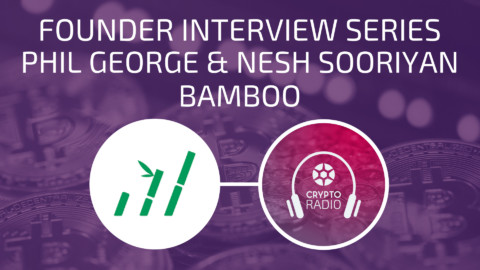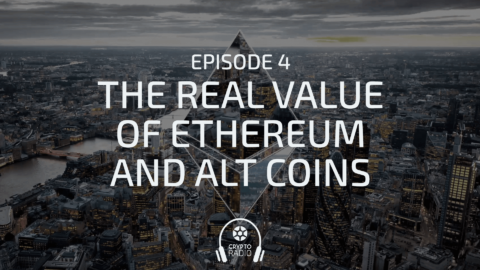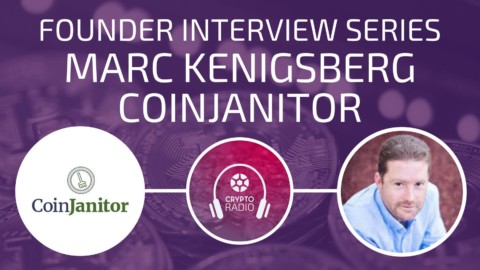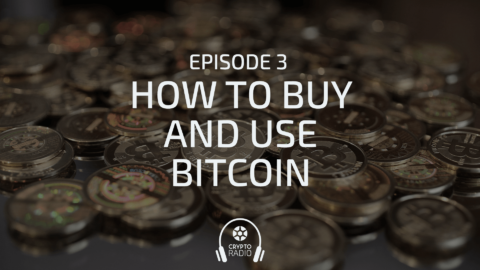Blockchain
A blockchain is a digitized, decentralized, public ledger of all cryptocurrency transactions. Constantly growing as ‘completed’ blocks, which are the most recent transactions, are recorded and added to it in chronological order, it allows market participants to keep track of digital currency transactions without central recordkeeping. Each node, which is a computer connected to the network, gets a copy of the blockchain, which is downloaded automatically. By design, blockchains are inherently resistant to modification of the data.
Cryptocurrency
A cryptocurrency is a digital or virtual currency that uses cryptography for security. A cryptocurrency is difficult to counterfeit because of this security feature. A defining feature of a cryptocurrency, and arguably its most endearing allure, is its organic nature; it is not issued by any central authority, rendering it theoretically immune to government interference or manipulation.
Smart Contracts
Smart contracts are self-executing contracts with the terms of the agreement between buyer and seller being directly written into lines of code. The code and the agreements contained therein exist across a distributed, decentralized blockchain network. Smart contracts permit trusted transactions and agreements to be carried out among disparate, anonymous parties without the need for a central authority, legal system, or external enforcement mechanism. These transactions are trackable and irreversible.
Distributed Applications – ĐApps
Software applications that are stored mostly on cloud computing platforms and that run on multiple systems simultaneously. The systems run on the same network and communicate with each other in an effort to complete a specific task or command. They are a type of software program designed to exist on the Internet in a way that is not controlled by any single entity.
Nodes
Users of the blockchain network which pass around transaction data (payments) and block data (additions to the ledger), so the blockchain ecosystem acts like a network of replicated databases, each containing the same list of past transactions.
Miners
Network users or nodes who perform mining, which is the process of validating transactions and adding them to a blockchain – a public ledger of past transactions. Miners decide by consensus which blockchain should be mined, or if there is a disagreement or a “fork”, which version of the code carries more potential for profit. Miners are paid any transaction fees as well as a “subsidy” of newly created coins. This both serves the purpose of disseminating new coins in a decentralized manner as well as motivating people to provide security for the system.
Fork
A software upgrade that introduces a new rule to the network that isn’t compatible with the older software. Users that continue running the old version of the software will see the new transactions as invalid. So, to switch over to the new chain, all of the users in the network need to agree to publish a new code and upgrade to the new rules.
Proof of Work
A mining process in which a user installs a powerful computer or mining rig to solve complex mathematical puzzles. The probability of mining a block is dependent on how much work is done by the miner.
Proof of Stake
A concept that states that a person can mine or validate block transactions according to how many coins he or she holds. The proof of stake system requires the user to show ownership of a certain number of cryptocurrency units.
DAO – Decentralized Autonomous Organization
A DAO is an organization that is solely based and ran through rules encoded as smart contracts. DAO is a complex smart contract on top of a blockchain. It is an entity that lives on the internet and exists autonomously, but also heavily relies on hiring individuals to perform certain tasks that the automaton itself cannot do.
Bitcoin
Bitcoin is a digital currency, also called cryptocurrency, created in 2009, that is not backed by any country’s central bank or government. Bitcoins can be traded for goods or services with vendors who accept Bitcoins as payment. There are no physical bitcoins, only balances kept on a public ledger in the cloud, that – along with all Bitcoin transactions – is verified by a massive amount of computing power.
Altcoins
An altcoin is any digital cryptocurrency similar to Bitcoin. The term is said to stand for “alternative to Bitcoin” and is used describe any cryptocurrency that is not a Bitcoin. Generally, they project themselves as better substitutes to Bitcoin. Most popular altcoins use the same fundamental building blocks as Bitcoin.
Ethereum
Ethereum is a decentralized platform that enables SmartContracts and Distributed Applications to be built and run exactly as programmed without any possibility of downtime, censorship, fraud or third-party interference. Ethereum is not just a platform but also a programming language (Turing complete) running on a blockchain, helping developers to build and publish distributed applications.
ICO
An unregulated means by which funds are raised for a new cryptocurrency venture. Initial Coin Offering means that someone offers investors some units of a new cryptocurrency or crypto-token in exchange against cryptocurrencies like Bitcoin or Ethereum. An ICO is used by startups to bypass the rigorous and regulated capital-raising process required by venture capitalists or banks. The pre-created token can be easily sold and traded on all cryptocurrency exchanges if there is demand for them. Investors hope that successful projects will cause tokens’ value to rise.
Utility tokens
Also called user tokens or app coins, represent future access to a company’s product or service. Through utility token ICOs, startups can raise capital to fund the development of their blockchain projects, and users can purchase future access to that service, sometimes at a discount off the finished product’s sticker price. The defining characteristic of utility tokens is that they are not designed as investments.
Security tokens
Financial instruments of ownership, similar to shares in a company. If a crypto token derives its value from an external, tradable asset, it is classified as a security token and becomes subject to federal securities regulations. The security token classification creates the potential for a company to issue tokens that represent shares of company stock.
Airdrops
A free token or coin distributed to the crypto community by a blockchain project. Airdrops are essentially giveaways used as a marketing tool with the purpose of gaining an early community of users, who are sometimes asked to perform little tasks like social media jobs. To be a recipient of a crypto airdrop, often the only requirement is that you have coins from the relevant blockchain stored in your wallet.









